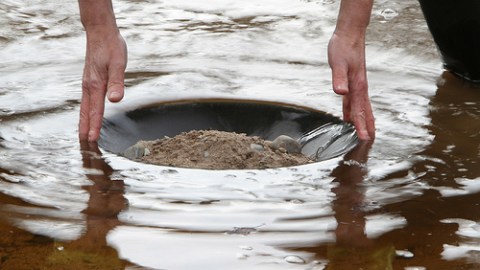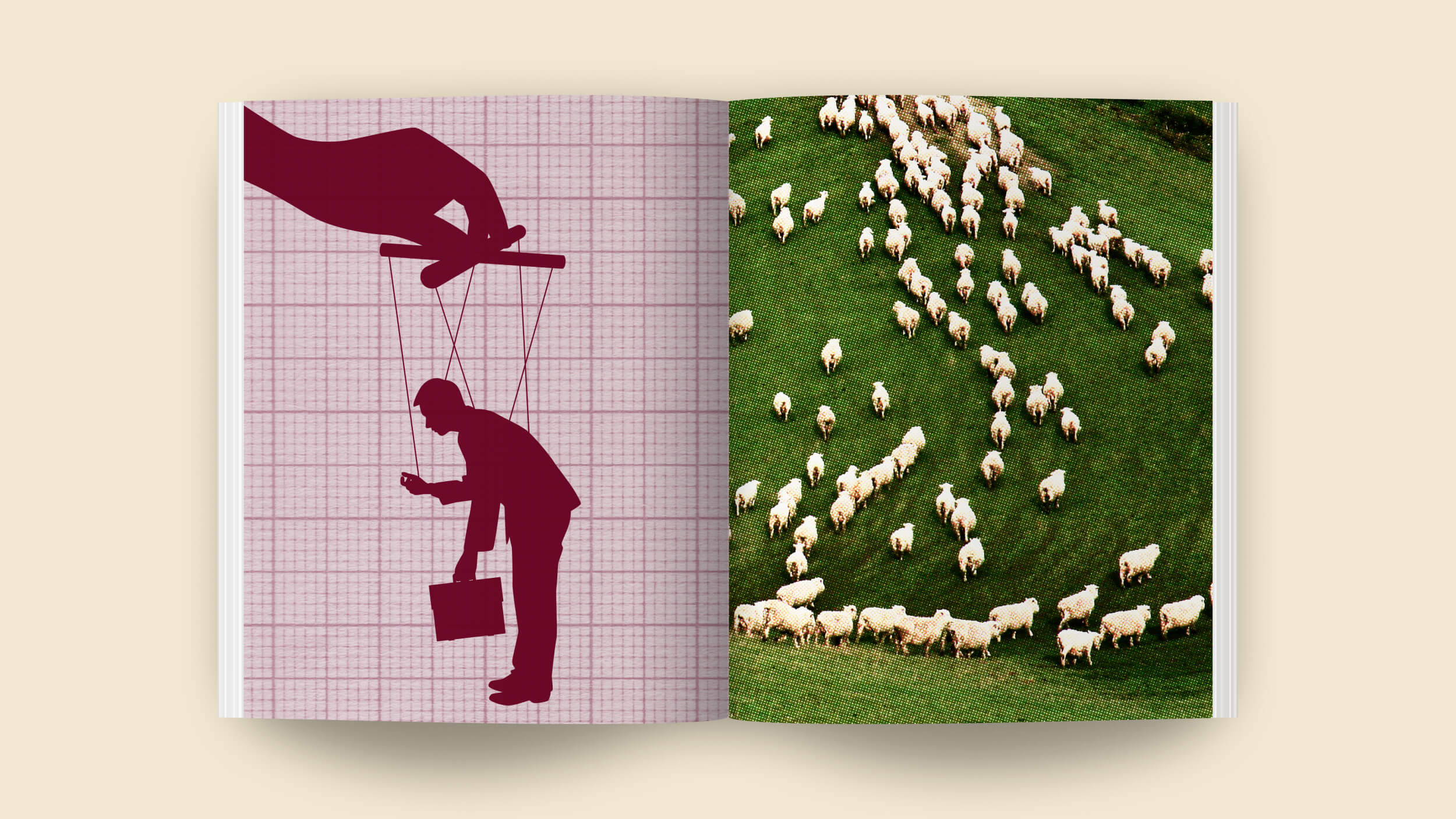Looking for Denver’s heart of gold – panning on the South Platte

Like many urban rivers, the South Platte in Denver is not always easy to get to. City officials have done a fair job of creating walking and biking paths along the river’s shores but much of it is still insulated and encased with railroad tracks, freeway interchanges, and industrial buildings. And I’m not looking to bike or take a pleasant walk along the water.
I’m looking for gold.
Gold built Denver. It was the discovery of gold in the small streams that feed the South Platte in 1858 that led to the Pike’s Peak Gold Rush of 1859. Over a hundred thousand prospectors made their way to Denver from all over the country with gold pans to make their fortune and in the process laid the foundation for the modern mile high city. I’m late to the party but I’m driving along the Platte for the same reason – to coax some of nature’s most precious metal out of the river.
I’m not alone. Gold panning and prospecting in general have undergone a renaissance in recent years due to high unemployment, an unsteady economy, and a spike in gold prices. Families whose typical vacations involved a long drive to an amusement park are now packing up to the hills to search for a little extra money in the great outdoors.
It’s turning out to be a more difficult proposition than I imagined, largely because I’m not that familiar with the city and while I think I know what a good panning spot looks like I’m not really that experienced. In fact I’ve only gone panning once before, in Golden, Colorado, and that was long enough ago that the couple whose wedding I attended now have a five year old girl.
I find a spot that looks promising, at least from the road, but getting down the ravine looks daunting and I can see the rather elaborate camp of one of Denver’s many homeless people peeking out from the trees. I move on. Finally, I find a place that looks like what I think a good spot would look like – low water level and a small pebble-stone beach under a tall and shady tree. I unload my gear from the car – chest waders, shovel, long screwdriver for probing the river bed holes where the heavy gold settles, buckets – and I lug it down to the river.
Time to pan. I make an upturned bucket into a makeshift stool and begin gathering gravel and loose stones from the deeper pockets in the riverbed that I run through a separator to weed out the larger stones. Then I dump handfuls of this into my pan and begin the panning process, dipping the pan into the running water and gently moving the pan from side to side to encourage (in theory) the gold flakes to settle in the bottom of the pan where they will be used to fund the purchase of a small island in the Caribbean. In theory.
But theory and fact are two different things and after an hour of work I have nothing but black dirt, known as concentrate or black sand in the trade and paydirt colloquially. It’s only paydirt when it pays, however, and I have yet to see any glitter in the pan. The day is beautiful though, sunny, temperate, a gentle breeze. It brings to mind an old adage about surfing – “A bad day surfing is better than a good day doing anything else” and it seems I can apply that to panning as well. As wastes of time go this is pretty sweet.
I hear a voice from the river bank behind me. “Get anything?”
I turn to see a man in his fifties on a mountain bike towing a two-wheel cart, hauling what appears to be panning gear. Looks like I found the right spot after all.
The gentleman’s name is Ron Cooper and shortly he arrives another panner shows up, also named Ron. Ron #2 can’t get out in the water due to a foot injury but he stares wistfully at the river as if he’s imagining all the gold hidden there that he won’t get today. He departs after a nice conversation and Ron and I get back to panning. Ron sets up a small sluice box to more efficiently remove gold from the buckets of material he digs from deep holes in the river bed. Ron’s a regular along this stretch of the river and I learn more from him in thirty minutes than I have in a month of reading and watching YouTube videos. He quickly teaches me the finer points of panning and after a few minutes I get what I came for – a small flake of beautiful yellow gold. It’s unmistakable and glitters in the morning light like nothing else could. Shortly thereafter, I find another flake.
As Ron and I pan we get another visitor. A man in his thirties has parked his expensive bike up on the bank of the river and come down to ask us about prospecting. He’s dressed like Lance Armstrong in the Tour de France and I’m pretty sure his Campagnolo cap cost more than Ron’s entire bike but he’s a nice guy and having just moved to Denver from California is completely thrilled to find out that Colorado prospecting is alive and well. The lure of gold does seem to cross all cultural divisions.
CC: How long have to been panning, Ron?
Ron: Only a couple of years, I started riding my bike down here and I used to see a guy up here around the corner, turns out his name is Rob, and he started out by digging up here and then started panning and that’s where he got the money to buy his dredge
CC: Nice.
Ron: That’s what he said. He’s kind of a character too. He’s been coming down here for years and he’s told me he can make 80, 100 bucks if he spends all day down here.
CC: That’s pretty good.
Ron: Yeah, which isn’t bad. So I kind of started watching him and got curious and came down and asked some questions. I had a pan at home so I come down here and it’s really frustrating at first because it’s just like what you’re doing, one scoop at a time and stuff. When I saw the first little bit it kind of got me excited.
CC: Do you remember your first color?
Ron: Yeah, it was tiny but it was right out here and it was exciting and that thing about gold fever, actually, it’s a reality. Doesn’t matter how big or small it is, it’s true.
CC: So on a good day how many people do you think are down here, like on a Saturday?
Ron: It depends, some of these guys got family and stuff and some of them go elsewhere. But yeah, there could be three guys here with dredges and maybe two or three people with pans and sluice boxes. It’s not too crowded, it’s good camaraderie and they’re all good people.
CC: Do you think the poor economy has boosted interest?
Ron: Nah, these guys have been doing it forever, no matter what.
CC: Have you noticed more people since the economy tanked?
Ron: Not really, not down here. There might be elsewhere, placed where you’re likely to find better stuff. But some people really do their research, and people with off-road vehicles and some good equipment might go and spend a lot of time at these places. But I haven’t noticed anything. There’s people that come down that are curious, you know, want to know.
CC: Sure, the guy on the bike
Ron: Yeah, like him, and families, there’s kids, there’s all kinds of people that come up to you. They’ll ask you and stuff, and you don’t want to tell them how little it is but you want to tell them it’s certainly here.
CC: Okay, what’s your best day?
Ron: My best day? Oh shoot. I guess it was that hole up there. The first two days wasn’t real good but then, it was probably about the fourth or fifth day when I was getting in every handful that I got out of my concentrate there was something in it and at one point I counted like 12 flakes. There was a couple good ones and just some like the one you had, about that size, so there’s like 12 of them and that was pretty exciting.
CC: Yeah, that’s a good day.
Ron: So you know, you go and there’s times you don’t get anything. That bed I just dug up there and put through the sluice box, there was absolutely nothing in it, but that’s the chance you take. You know you go ‘Oh shoot, I guess nothing washed into there last night’, you know, with that rain runoff, but I know that hole right there was a good hole and a guy said a year before, a couple of years before, he’d dredged it all out, so something washed back in there and it was fun.
CC: Nature takes care of it.
Ron: There was probably half a dozen good flakes in there, but you never know, Using the shovel, you’re not really scrapping the bottom, you’re not sucking up the bottom, so you know there’s something still down there. So my goal is to get a dredge for stuff. I was supposed to a couple of years ago, two summers ago, but then the country went south and I had to spend my money on bills and once you do that your money’s gone. But I’ll get something, I’ll get production going a little bit better and it will get more and more exciting. Just like if you go from this [panning], once you bring a sluice down here, you’re going to be moving more gravel and you have more concentrate and you’ll be finding more stuff. And the more you can move, the more exciting it gets. So if I get a dredge and get out here and start sucking it up all day, since I don’t have a job, I can spend more days down here than anybody else.
CC: Would you describe yourself as self-employed currently?
Ron: I have been for a long, long time but it got so bad that even the people I was doing stuff for, remodeling here and there, whatever, they don’t have any money. They used to pay you to come hang a door or do some baseboard or redo their bathroom or something but nobody’s got any money. So, it’s . . . I got what they call OAP, old age pension.
CC: How old are you?
Ron: I’m 62.
CC: Oh, I was going to say mid-50s!
Ron: Well, I wish I was! When I was younger I’d always tell the women at the bars that I was 10 years younger and got away with it
CC: Well, you look pretty good for your age.
Ron: But you know I actually haven’t been in a bar . . . I quit drinking about 10 years ago so I haven’t been in a bar and done anything with that stuff and I just walked out and said goodbye and haven’t seen hardly any of my friends or anything. I didn’t see anything in it and I started riding my bike and that’s when I started seeing people down here and getting out and one thing led to another and here we are. You know, you couldn’t pay me to do this all day long but I’ll come down here and do it for free for 4 or 5 hours a day.
CC: Exactly, that’s the irony of it!
Ron: Yeah, it is, it absolutely is. You wouldn’t do this any other time. It’s that thinking about it, it’s in the back of your mind. You go to find something, you’re going to get a lucky day and you get that stuff and you keep putting it in your little vial and it keeps filling up and every night you look at it and you shake it around and you hold it out in the sun and it’s all glittery, it’s just pretty you know, it’s beautiful.
CC: You don’t cash it in?
Ron: Well, I haven’t got enough to cash in. If you were here 365 day and you did what you did today there wouldn’t be enough to cash in, there wouldn’t be nothing. It’s different, it’s not like having a . . . I mean, you can look at a gold ring or a gold necklace or something but when you’re got those flakes in a bottle, you shake it around, it’s so much prettier. God, it’s pretty. You know how excited you got over that little piece.
CC: Absolutely, it’s fantastic!
Ron: That’s the feeling man! That’s what you do and you keep thinking ‘Well, tomorrow maybe, tomorrow maybe, you know, a little bit more, a little bit more’ and you know when somebody gets something you see them come running across, and you know it’s only one flake but it’s a nice flake and you know they’re coming to show you something and you got to brag about it. Yeah, it’s fun, it’s fun, plus a lot of good people. There’s people that go other places and stuff and its okay, there’s a million stories about this and that and finding a big rock and digging underneath here and whatever. But it’s what you do that really counts. Like they say, it’s nice and relaxing and it’s fun and see we did a lot of yacking about stuff and you’re on an adventure and this is my adventure everyday instead of sitting around watching TV or going to bars like other people do. I come down here when it’s nice and sometimes when it’s not so nice. There’s other guys that come down here with a dredge and a wetsuit and they get out of that water and they’re shaking. They’re purple but they go back in there and do it. It’s fun, man.
_______________________
Other Recent Posts:
The (New) Great American Road Trip
Rick Perry and the Satanic Statue of Liberty
Could ‘UFO’ on the ocean floor really be the lost city of Kvenland?
Is 3D Printing Technology A Supervillain’s Best Friend?
Suspended Animation – The Strange Science of Captain America
var gaJsHost = (("https:" == document.location.protocol) ? "https://ssl." : "http://www.");
document.write(unescape("%3Cscript src='" + gaJsHost + "google-analytics.com/ga.js' type='text/javascript'%3E%3C/script%3E"));
// ]]>
try {
var pageTracker = _gat._getTracker("UA-11920094-1");
pageTracker._trackPageview();
} catch(err) {}
// ]]>





